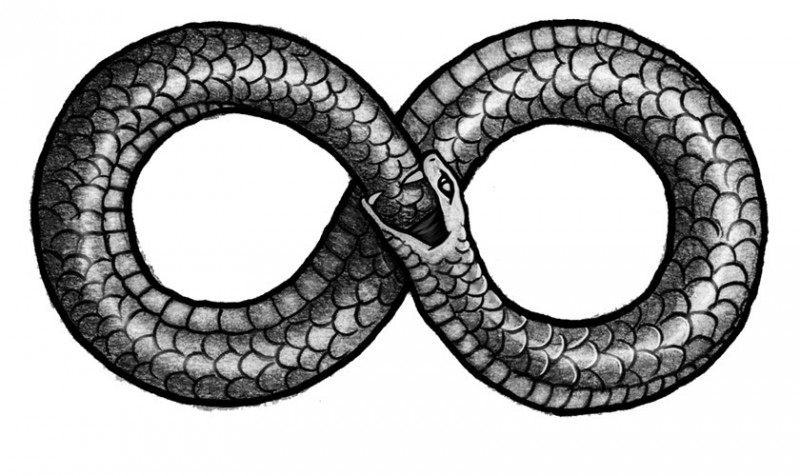An outstanding question in the evolution of aging is whether telomerase activity (which preserves the ends of linear chromosomes and lengthens the replicative lifespan of cells) is related to lifespan per se.
On on hand, it seems likely that it would be related positively: The longer one lives, the longer one’s cells need to continue regenerating. On the other hand, the longer one lives, the more likely one is to accumulate cells with oncogenic lesions. Since telomere maintenance is essential for tumor cell viability, one might not want these damaged cells to have ready access to telomerase expression…and this logic might lead us to the opposite conclusion.
A further confounding factor is body mass: In order to get a larger body, one needs more cell divisions, so one might expect larger organisms to exhibit higher telomerase activity. Then again…more cells means more risk of cancer…
It’s almost like one can’t derive biology from pure logic.
Coming down firmly on one side of the argument, Seluanov et al. show that among rodents, telomerase activity has co-evolved with body mass, but not lifespan. Furthermore, the correlation is negative: telomerase activity is more restricted in larger animals, perhaps as a defense against the increased cancer risk that comes from having more cells:
In multicellular organisms, telomerase is required to maintain telomere length in the germline but is dispensable in the soma. Mice, for example, express telomerase in somatic and germline tissues, while humans express telomerase almost exclusively in the germline. As a result, when telomeres of human somatic cells reach a critical length the cells enter irreversible growth arrest called replicative senescence. Replicative senescence is believed to be an anticancer mechanism that limits cell proliferation. The difference between mice and humans led to the hypothesis that repression of telomerase in somatic cells has evolved as a tumor-suppressor adaptation in large, long-lived organisms. We tested whether regulation of telomerase activity coevolves with lifespan and body mass using comparative analysis of 15 rodent species with highly diverse lifespans and body masses. Here we show that telomerase activity does not coevolve with lifespan but instead coevolves with body mass: larger rodents repress telomerase activity in somatic cells. These results suggest that large body mass presents a greater risk of cancer than long lifespan, and large animals evolve repression of telomerase activity to mitigate that risk.

[…] On Telomerase and Body Mass Ouroboros follows up on recent work on telomerase levels by size of species: “An outstanding question in the […]
Telomerase is also responsible for increasing cellular sensivity to oxidants (see Santos et al 2006) therefore another interpretation to account for the inverse relationship between body mass and telomerase observed in rodents may be to enable cells to endure greater oxidative stress.
(1) Hum Mol Genet. 2006 Jun 1;15(11):1757-68
could the reason why thin people tend to live longer be related to the fact that they express telomerase more than others w/ greater body mass
Who ever told you that thin people tend to live longer??? Above sixty higher bodyweight is a survivalfactor! The same is true after major surgery: it are the people with greater bodymass that survive longest, because they have more reserves!
Which does not mean that morbid obesity is healthy. This rule goes for reasonable bodyweights that do not have strong negative impact on general health.
do not always believe what the media want you to believe!